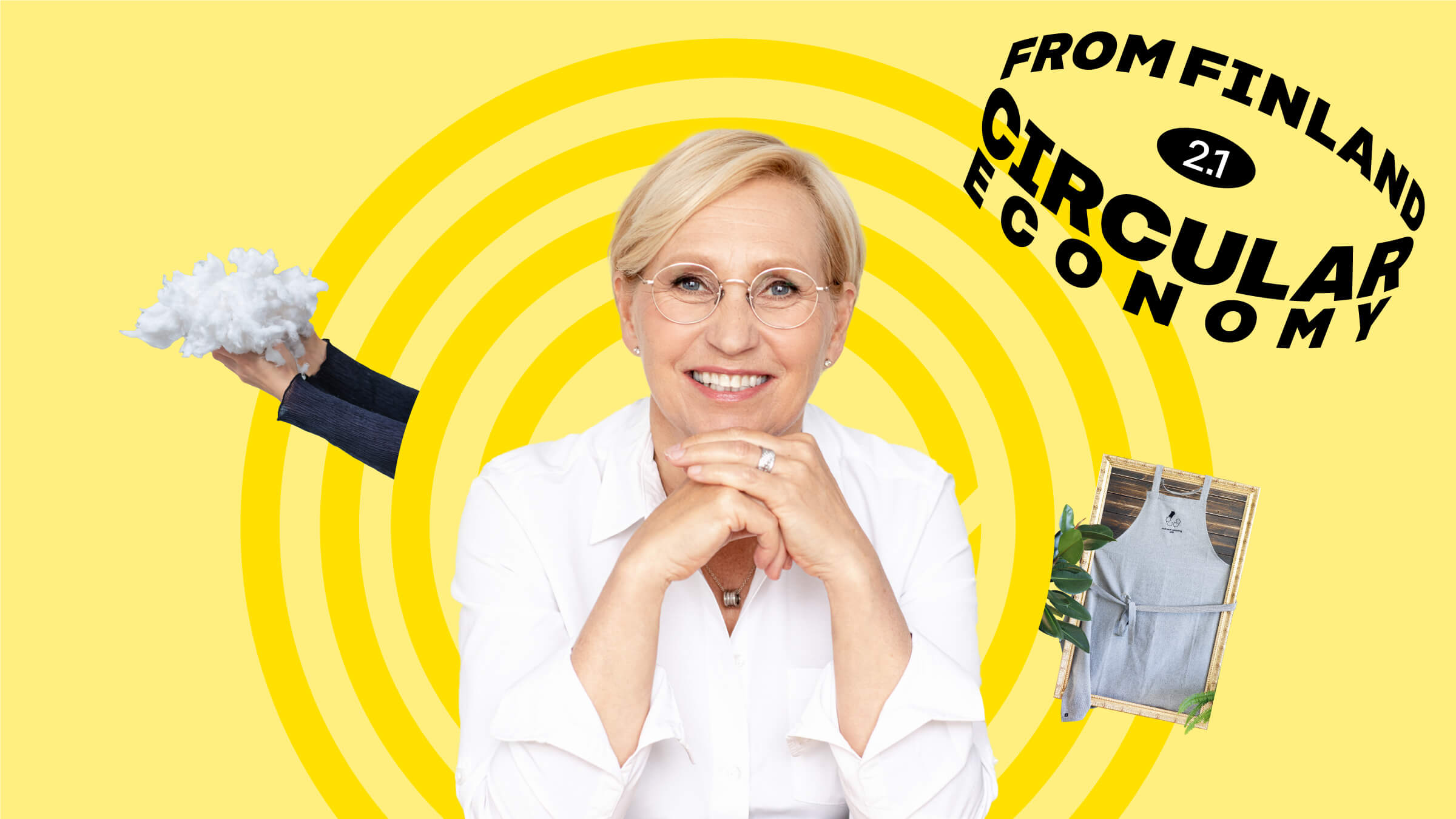“Approximately one hundred million kilograms of textile waste is generated by consumers and companies in Finland every year. With the EU’s waste directive, the separate collection of post-consumer textile waste will begin in Finland in 2025 at the latest, but this does not apply to the end-of-life textiles of companies. In many companies, end-of-life textiles are taken directly to be incinerated.
I moved into the textile industry in 2008 when we founded Touchpoint Oy, a company that manufactures responsibly produced workwear. That is when I began to think about the textile circular economy. We left no stone unturned when we were looking for more sustainable ways of producing textiles.
Currently, our recycling plant in Paimio can process 6,000 tonnes of end-of-life textiles per year. In addition, we collaborate with Lounais-Suomen Jätehuolto, the company responsible for the management of consumer waste in South-East Finland. Our shared goal is to process approximately 10 per cent of the textile waste generated in Finland.
Our recycling plant receives end-of-life textiles from companies such as laundries, companies producing workwear and from offcuts generated as side streams from industry. For example, end-of-life textiles are created as a by-product in the production of cleaning mops.
We use the end-of-life textiles to make recycled fibre for the domestic textile and construction industry. Textiles are used in a wide variety of products, from clothes to furniture to air filters. For example, recycled fibres can be made into yarn, which can be made further into fabrics or technical textiles for the textile industry. Our recycled fibre thus enables a fully domestic textile value chain from beginning to end. In the construction industry, recycled fibre is used for insulation material, acoustic boards, filter fabrics and composites.
We want to revolutionise the raw materials of textiles in industry. Wasting natural resources for the continuous production of virgin raw materials such as cotton and polyester is not sustainable. It also does not make any sense if the alternative is to make new materials from existing materials that are already in circulation.
I get inspired again and again about the opportunities provided by the circular economy. We constantly develop the process used in our recycling plant and conduct research on how different blends and raw materials can be recycled. It is great to create new kinds of business while also solving environmental challenges. The discussions with people are also extremely inspiring – I have yet to meet a person or a company that has not warmed to the idea.
In future, we want to expand into international markets. For example, we are already piloting the processing of end-of-life textiles generated in the Baltic states and the Nordic countries. Of course, you also have to consider from how far it is sensible to transport material to Finland and, on the other hand, where materials for which there might be a demand are generated.”









Suosittelemme
Vielä yksi